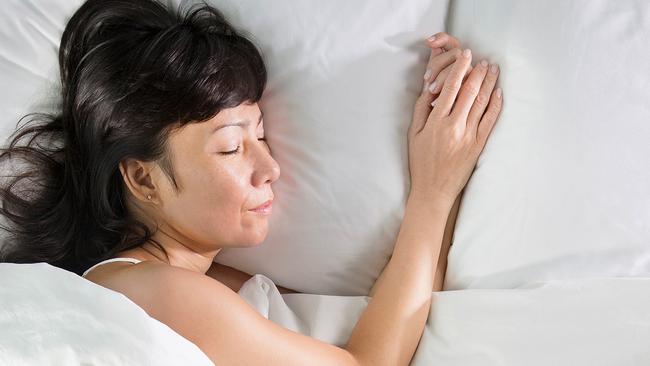From erotic dreams to risk of dementia: How the ways we sleep can affect us
HOW you sleep can have serious impacts on your health and can increase the likelihood of dementia, heart problems and back pain.
Health
Don't miss out on the headlines from Health. Followed categories will be added to My News.
HOW you sleep can have serious impacts on your health and can increase the likelihood of dementia, heart problems and back pain.
Here are four of the most common sleeping patterns and how they can affect your wellbeing.
1. ON THE LEFT

BENEFITS:
Sleeping on the left is believed to be beneficial for blood circulation, heartburn problems and preventing back-pain.
Online practitioner of Lifespa.com, John Douillard, explains: “If you sleep on your left side, the lymph drainage toward the heart will again be helped by gravity, taking some of the workload off the heart as you sleep.”
DRAWBACKS:
Research led by Dr Mehmet Yucel Agargun found that those who slept in this position were far more likely to experience nightmares.
The survey revealed that 41 per cent of those who slept on their left reported bad dreams, compared to only 15 per cent that doze on their right.
2. ON THE RIGHT

BENEFITS:
A study led by Stony Brook University, New York, reveals sleeping on the right can reduce the risk of Alzheimer’s.
It is believed lying towards the right can help the clearance of waste products from the human brain, making the development of neurological diseases less likely.
DRAWBACKS:
Research led by bed maker Sealy UK revealed those who slept on their right were 7 per cent more likely to be grumpy in the morning.
Experts from the University of Auckland, New Zealand, believe pregnant women who sleep on their right have restricted blood flow, so have increased likelihood of delivering a stillborn baby.
3. ON YOUR BACK

BENEFITS:
Sleeping on your back stops your face from rubbing against the pillow throughout the night.
Lying with your cheeks down can cause the build-up of sweat which can lead to blocked pores and spots.
As well as this, cosmetic surgeon Dr Goesel Anson warns: “Because your face isn’t being pressed firmly into a pillow for six hours or more at a time, you’re less likely to get wrinkles and spots.”
DRAWBACKS:
Resting with your head back on the pillow increases the likelihood of airway obstruction.
The British Snoring and Sleep Apnoea Foundation believes those who sleep on their back are more likely to snore because of “effects of gravity on the upper airway”.
4. ON YOUR FRONT

BENEFITS:
The ‘free fall’ sleep position makes a dreamer more likely to have saucy dreams, believe experts from Hong Kong’s Shue Yan University.
It’s believed this is because sleeping on your front restricts the breathing, creating the feeling of being trapped or tied down.
DRAWBACKS:
Lying on your front can lead to back pain and other tensions in the body.
Rishi Loatey, an expert from the British Chiropractic Association, claims: “It can overstretch and tighten opposing neck muscles and pinch nerves, leading to headaches, a stiff neck, tight shoulders and in some cases, pain radiating down the arms.”
This article originally appeared in The Sun and was reproduced with permission.
Originally published as From erotic dreams to risk of dementia: How the ways we sleep can affect us






